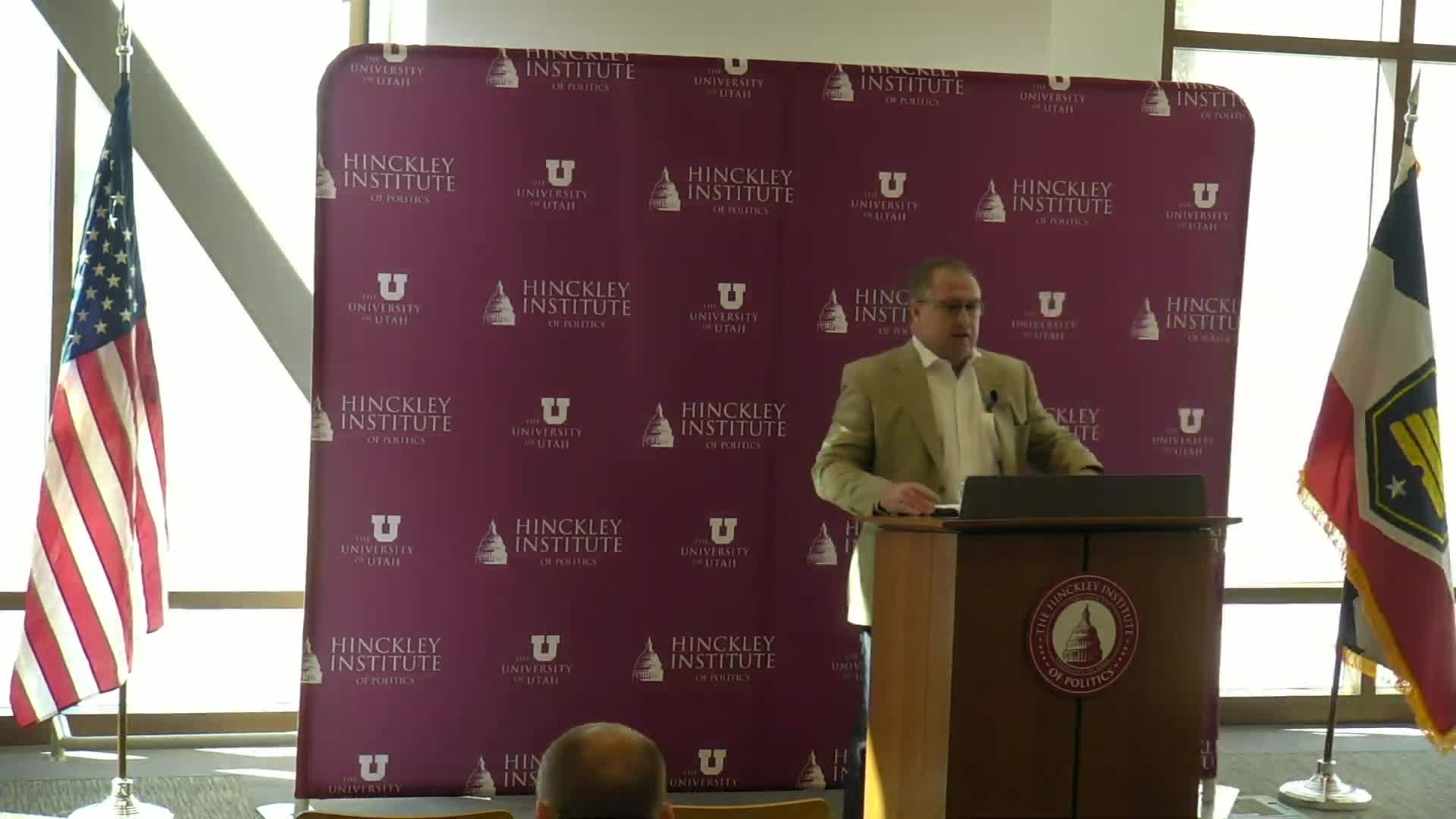Scholar says 'prudence' has changed over time and cautions against treating realist policy advice as sole form of prudence
Get AI-powered insights, summaries, and transcripts
Subscribe
Summary
Harry Gold, an associate professor of politics and international relations at Florida International University, told a Hinckley Institute forum at the University of Utah that "prudence" is not a single, fixed concept but a cluster of historically shifting usages.
Harry Gold, an associate professor of politics and international relations at Florida International University, told a Hinckley Institute forum at the University of Utah that "prudence" is not a single, fixed concept but a cluster of historically shifting usages.
Gold delivered the Wormeth Endowed Lecture titled "Problematics of Prudence," tracing how definitions of prudence have varied from classical accounts that link it to moral judgment to modern usages that treat it as a skill or a risk attitude. He warned that contemporary commentators who claim exclusive custody of the term—especially in debates over responses to Russia’s invasion of Ukraine—overlook competing traditions that attach moral content to prudential reasoning.
Gold said the variation in meaning is not a problem to be erased by a tidy operational definition. Quoting Nietzsche and scholars of conceptual history, he argued that "only that which has no history can be defined," and therefore researchers should expect plural, context-dependent senses of the term rather than one authoritative definition.
He summarized several traditions: the Aristotelian view in which prudence (phronesis) is a virtue of practical reason oriented to morally good ends; Roman rhetoricians such as Cicero who equated Latin prudentia with Greek phronesis; early‑modern writers (for example, Thomas Hobbes) who described prudence as deliberation toward felicity; and strands of the realist foreign‑policy tradition that treat prudence primarily as sober calculation about national interest.
Gold criticized contemporary assertions—by commentators including John Mearsheimer, Stephen Walt and Henry Kissinger—that realist prescriptions automatically represent the authentic form of prudence. He said claimants to exclusive authority over the term should show epistemic modesty and account for longstanding traditions that ground prudence in moral considerations. "The calculus of realism is not the only understanding of prudence," he told the audience, adding that prudence has long been regarded as a "broadly reliable guide, but not an infallible one."
Gold also addressed methodological questions: he urged historians and political theorists to tell genealogies of how the word has been used rather than to impose a single retrospective definition. He noted that disciplines such as law and medicine often adopt working definitions for practical purposes (for example, trust law or tort standards), but warned such circular definitions can obscure the concept's ethical and historical complexity.
In a question-and-answer period, attendees asked whether prudence is a teachable practice and what role researchers play if it is. Gold described prudence as an "interrelated set of practices" that can be taught by example, mentorship and historical study, but he resisted reducing it to a teachable formula. He also acknowledged limits in his own book: while he said the manuscript addresses gender and the personification of prudence in iconography, he conceded the book contains less material from non‑Western literatures that are not themselves responding to Greek or Western sources.
Gold closed by outlining two related projects spawned by the research: (1) applying medical-ethics standards to political leadership when leaders present themselves as "physicians to the body politic," and (2) re-examining moral-sense and moral-sentiment theories for resources they might offer to ethics in international relations.
Gold delivered his remarks as part of the Wormeth Endowed Lecture Series; the event included a 15‑ to 20‑minute audience question-and-answer session and closed with a brief announcement from the host.
